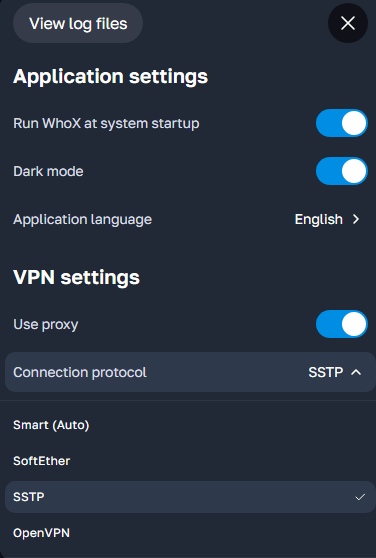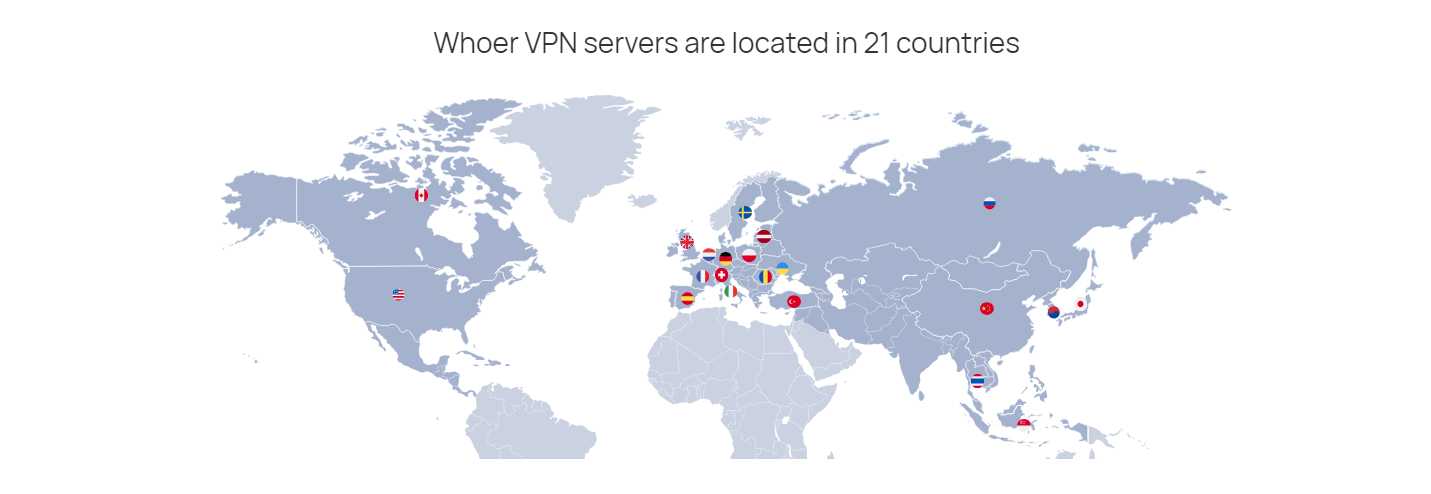The best VPN for China: how to choose it
China has one of the strictest internet censorship systems in the world, known as the Great Firewall. The government uses complex technical and administrative measures to control and restrict access to the global internet. This includes blocking many foreign websites and services like Google, Facebook, and Twitter. A key tool people use to bypass these restrictions is VPNs. However, using a VPN in China is restricted. The Chinese government has made significant efforts to detect and block VPN services, causing many of them to stop working in the country. A lot of popular VPN services cannot bypass this censorship.
Yet, it’s important to note that with all respect to Chinese laws, citizens who are not involved in criminal activities and do not use VPNs for malicious purposes have the right to free access to information. So, it’s crucial to ensure the availability of effective VPN services that can bypass Chinese blocks and provide access to open resources. Such VPNs exist and continue to be developed and improved to remain functional even under strict censorship.
In this article, we will explain how to find a working VPN in China, what technologies and methods are used to bypass blocks, and how to ensure stable access to blocked resources. We will discuss important features and characteristics of VPN services that allow them to be effective and provide practical tips on choosing and using a VPN in the context of Chinese censorship.
Choosing the right VPN for China: insights into censorship methods
To help you make an informed decision when selecting a VPN for use within China, it’s vital to understand the methods employed by authorities to restrict access to certain websites and services.
China’s censorship tactics are diverse, employing a mix of technical and administrative measures. One of the main methods is IP address filtering, where Chinese Internet Service Providers (ISPs) block access to specific IP addresses associated with content deemed undesirable. Additionally, DNS spoofing redirects users to incorrect IP addresses or warning pages, making it difficult to access targeted sites.
URL and keyword filtering further reinforce censorship efforts by blocking web pages containing prohibited terms or phrases. Through deep packet inspection (DPI), authorities analyze internet traffic content in real-time, allowing them to detect and block VPN usage and other circumvention methods. This thorough examination of packet metadata and content helps identify VPN or proxy usage patterns.
Furthermore, blocking commonly used VPN ports, such as OpenVPN (port 1194) or L2TP (port 1701), is another effective strategy. Throttling and Quality of Service (QoS) techniques may also be employed to slow down VPN traffic, making it cumbersome to use.
In addition to technical measures, administrative actions like blocking access to VPN provider websites and imposing penalties on users and developers are also used to reinforce censorship efforts. These social engineering tactics aim to discourage individuals from seeking alternative access routes.
Understanding these censorship methods is crucial for selecting a VPN service that can effectively bypass these barriers. By opting for a VPN with strong encryption, obfuscation features, and a diverse server network, you can enhance your ability to circumvent censorship and securely access the open internet from within China.
What makes your VPN effective in China?
To get around the restrictions in China, a VPN needs specific features and tricks. Here’s a rundown of the essential properties and features a VPN should have to bypass the Chinese firewall:
1.Support for modern traffic obfuscation protocols: VPNs should use sneaky protocols that are hard for the Chinese government to block. Having a variety of these protocols gives you more options. The best VPN protocols for China disguise your internet traffic, making it look like regular web browsing. Two good ones are SSTP and SoftEther.
SSTP‘s like a secret tunnel that utilizes port 443, commonly used for HTTPS traffic, so it’s tough for the censors to spot. Plus, SSTP provides high-level encryption using SSL/TLS, making its traffic nearly indistinguishable from regular HTTPS traffic. SSTP is known for its stability and reliability, especially in networks with restrictions and filters. It supports reconnection, maintaining a stable connection even in unstable network conditions.
SoftEther is an open-source protocol developed in Japan. This VPN protocol can utilize port 443 and SSL/TLS for traffic encryption, making its traffic indistinguishable from regular HTTPS traffic. This complicates detection and blocking by DPI. SoftEther includes traffic obfuscation features, masking VPN traffic as regular internet traffic. This allows it to bypass DPI and other traffic analysis methods. SoftEther is optimized for high speed and performance, making it convenient for use in environments with restrictions and low connection speeds. SoftEther includes NAT Traversal technologies, allowing connections even through routers and firewalls that don’t support direct VPN connection. This is especially useful in heavily filtered environments. SoftEther allows hiding VPN servers using dynamic DNS technology and special encryption methods, making them difficult to detect and block.

2. Lots of servers worldwide: VPNs should have servers all over the world, including nearby countries like Japan and Thailand. Why? Because the closer the server, the faster your connection will be. Plus, having servers everywhere makes it harder for the censors to block them.

3. Own DNS Servers: VPNs need their own DNS servers to avoid China’s sneaky DNS tricks. These servers make sure your internet requests don’t get intercepted and redirected by the Chinese authorities.
4. Under the radar: Choosing a less well-known VPN might be a good idea. Less popular VPN services may be less susceptible to blocking, as they are less known to Chinese authorities. They may employ non-standard methods to bypass blocks, remaining under the radar of major regulatory bodies.
5. Automatic switching features (Kill Switch): A good VPN should have a feature called a “kill switch.” It’s like a safety net – if your VPN connection drops, it automatically cuts off your internet connection. This stops your data from leaking out and keeps you safe.

6. Speed and stability: Nobody likes a slow or unreliable connection. A good VPN should be fast and stable, so you can browse the web without any hassle.
7. Regular updates and support: The internet is always changing, and so are the ways China tries to block VPNs. That’s why it’s important to choose a VPN that gets regular updates and has good customer support. They’ll help you stay one step ahead of the censors.
In conclusion, when it comes to choosing a VPN for China, it’s essential to opt for one with stealthy protocols, a wide server network, robust security features, and reliable support. By selecting a VPN that can effectively navigate through China’s censorship measures, users can ensure uninterrupted access to the open internet, maintaining privacy and freedom online.

 Русский
Русский English
English